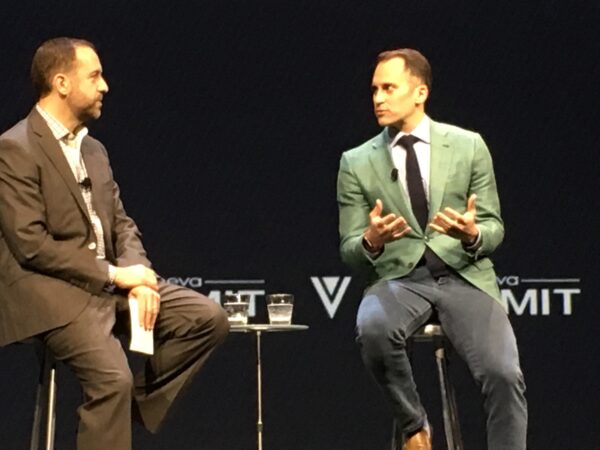
Payments over time are an attractive model for paying for expensive gene therapies, but things need to move faster on the policy end, the head of the first company to win Food and Drug Administration approval for a gene therapy said Wednesday.
Speaking in a fireside chat at Veeva’s North America Commercial & Medical Summit in Philadelphia, Spark Therapeutics CEO Jeff Marrazzo expressed disappointment that policies to enable such installment payments for gene therapies were taking a long time to be put in place at the Centers for Medicare and Medicaid Services.
“Certainly, we are continuously optimistic, but we would like to see the pace of policy changes we want to make happen more quickly,” Marrazzo told Veeva President Matt Wallach. “There are reasons why the government takes time to think through it, but these are the reforms that need to happen, where we get paid over time,” he said, adding this was the best way for gene therapies make it to the market.
In December 2017, Philadelphia-based Spark became the first company to win FDA approval for a gene therapy, Luxturna (voretigene neparvovec-rzyl), for patients who go blind due to defects in a gene called RPE65. In June 2018, the company unveiled three new payment models for Luxturna, which costs $850,000 to treat both eyes. These include an outcomes-based rebate arrangement with a long-term durability measure; a contracting model and a proposal to make payments over time to CMS.
As of last year, Marrazzo said, the proportion of payments for Luxturna in the commercial market was about 60-40 in favor of the more innovative payment models versus the traditional buy-and-bill model. While the company would pay rebates if the therapy does not work, Marrazzo added that to his knowledge, it has not yet had to do so.
In an interview after the fireside chat, Marrazzo said he sees payment over time for a one-time treatment as a model for gene therapies. “Generally speaking, I think it is broadly applicable,” he said, though he added he could not speak to other gene therapy companies’ plans.

As Healthcare and Biopharma Companies Embrace AI, Insurance Underwriters See Risks and Opportunities
In an interview, Munich Re Specialty Senior Vice President Jim Craig talked about the risk that accompanies innovation and the important role that insurers play.
While Luxturna was the first gene therapy to win FDA approval, it certainly won’t be the last. In March, a panel of experts at the European Medicines Agency issued a positive opinion – a big step toward approval – for Cambridge, Massachusetts-based bluebird bio’s Zynteglo, a gene therapy for the blood disorder beta-thalassemia. The company also plans to seek FDA approval. Meanwhile, Spark – which in February agreed to be acquired by Swiss drugmaker Roche for $4.8 billion – has additional therapies in development for hematological and neurodegenerative disorders, while numerous other companies have gene therapies of their own.
Photo: Alaric DeArment, MedCity News








